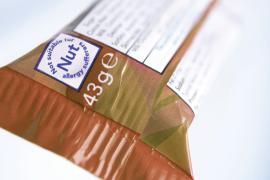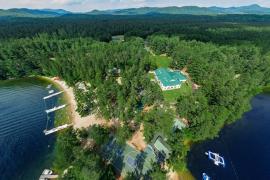The camp food service operation is sometimes asked to get involved with food and nonfood-related program offerings, so it makes sense that classes and activities be designed to include the non-edible elements that could be created with food service supplies. If need be, the food service director, the crafts instructor(s), and the program director can sit down and plan these classes and activities together.
Nonfood Class Ideas
Following are some nonfood class ideas that will be sure to cook up enthusiasm among creative campers:
- Make play-dough — there are many uses for play-dough once the campers have made it. They can create Gumby-type characters and/or use the play-dough to re-create the camp. Each cabin group could design its own cabin for the miniature map. Or, if there is a photography program or film-making program at camp, campers can create stop-animation movies with the play-dough characters.
- Papier mache — everyone loves a parade. Campers can use papier mache to create items for parade floats.
- Baked dough — who needs clay to make sculptures? Campers can make animals or other shapes out of dough, bake it, and then coat it with a sealant for long-lasting enjoyment.
- Braided baskets — braiding dough to create baskets can allow each cabin group to have its own unique bread basket on their table in the dining hall.
- Cornucopia — campers can make these festive table decorations for a special, finale meal, or for a "Thanksgiving at camp" meal.
- Toys and structures — dough the campers make themselves is also a great material for creating toys and structures, such as dolls and log cabins, to use during free play time.
- Giant face masks — campers can make and decorate funky face masks to be worn during a camp fair or festival day, or while atop those home-made, papier macheadorned floats in a parade. These can be created in any shape: flower, hat, monster, animal, statue of liberty, sun, etc.
Food as an Art Form
Many day camps, Vacation Bible Schools, and after-school programs feature art activity programs that include food as part of the design. Having simple supplies such as poster paper, cardboard, glue, dried beans, pretzels, Cheerios, Goldfish crackers, and other colorful food and nonfood items can help campers create unique pieces of art.
Food items easily lend themselves as key components in the world of 3-D imaging. A complete relief map of the camp can be re-created on a permanent surface complete with pretzel log cabins and fencing, bread-dough horses, a blue gelatin pool, marshmallows, graham crackers, and even chocolate for a s'mores house contest.
Other activities might include a watermelon-carving contest to see what imaginative masterpieces the campers can create using only their tools and the watermelon itself.
All art activity programs using both food and nonfood items can be enhanced with a digital media emphasis, creating videos and slide-shows of the contests or creations.
Apron Art
Expanding on the art theme, offer campers the opportunity to create their own aprons, or build camaraderie with food services staff by decorating aprons for them. Use plain, white aprons as the canvas for their creations and offer permanent markers, fabric paint, and/ or other art supplies campers can choose from to bring their apron art to life. Tie-dying is also an option if someone on your camp staff is versed in the technique.
Campers could even transform their artistic aprons into batik originals. Batik is a technique of wax-resist dyeing applied to cloth to create intricate patterns and designs. Visit www.fashion-era.com/Fashion_Fabrics/fashion_fabrics_batik1.htm for instructions. As an added bonus, the site offers an amazing learning opportunity, providing a historical perspective on the origins of the batik design, which came from Indonesia, and what the different fabric designs symbolize.
Camp Café
While running a camp café requires some campers who are willing to bake menu items, such as brownies, cinnamon rolls, and cupcakes, it also needs campers willing to tackle the nonfood roles associated with operating such a business.
Giving campers the opportunity to participate in the start-up of a business at camp teaches them responsibility and gives them a sense of the bigger world picture. They can learn about:
- Food and supplies costs
- The power of social media and advertising
- Marketing different products
- Working the "front of the house" with customers or the "back of the house" making the products to be sold
Additionally, campers get the benefit of two valuable take-home applications that they can apply to real-life situations (these can also be part of written objectives when designing a food program): Campers will learn to work on projects or tasks until they are complete, and they will get early exposure to a career-readiness opportunity to help jump-start thinking for their futures.
Important note: Before embarking on the café concept at your camp, be sure to check with local regulatory agencies to see if the idea floats in your area.
One of the most critical and valuable pieces of the camp café model — as well for any of the culinary programs — is the opportunity to teach campers of all ages about food safety. Any food-related program needs to feature strong food safety, utensil responsibility and safety, and especially personal hygiene training elements. If campers can go home knowing general handwashing procedures and the science behind why it's necessary, some equipment and utensil responsibility and management skills, and some actual food preparation training, the parents and children will be quite pleased with the overall success of the program(s). Offering opportunities for nonfood creative fun with food services supplies is one way to get campers comfortable with the culinary environment and utensils.
Nonfood Recipe Resources
For recipes to make nonfood items such as play-dough, papier mache, etc., check out the following websites:
Viki Kappel Spain, MEd, is an author, consultant, and speaker, and has been cooking in the camp industry since 1985. She is an active member of the ACA Northern California Field Office, and presents at ACA and other agency conferences, featuring essential information in the camp food service arena. Viki can be reached at [email protected].


